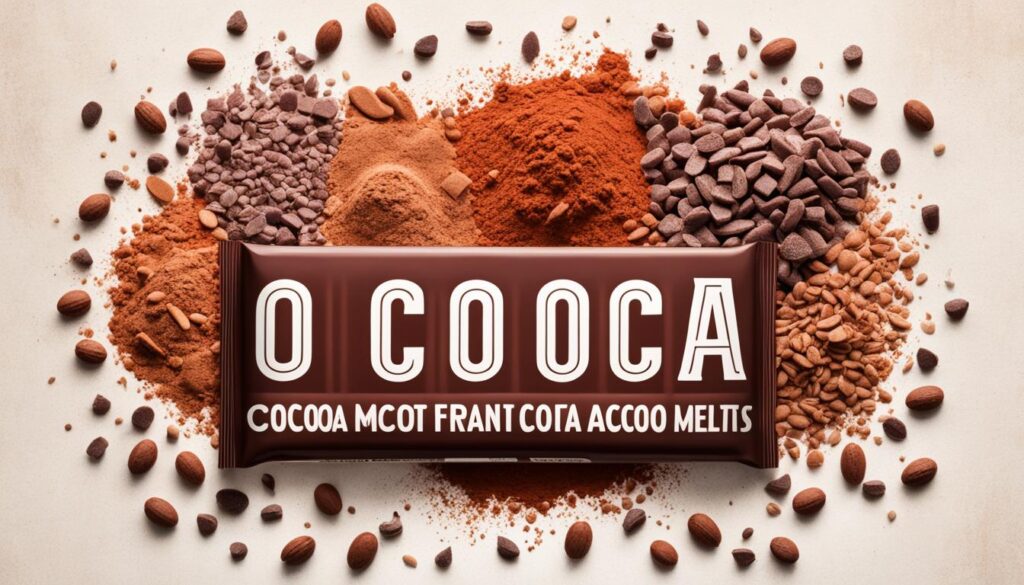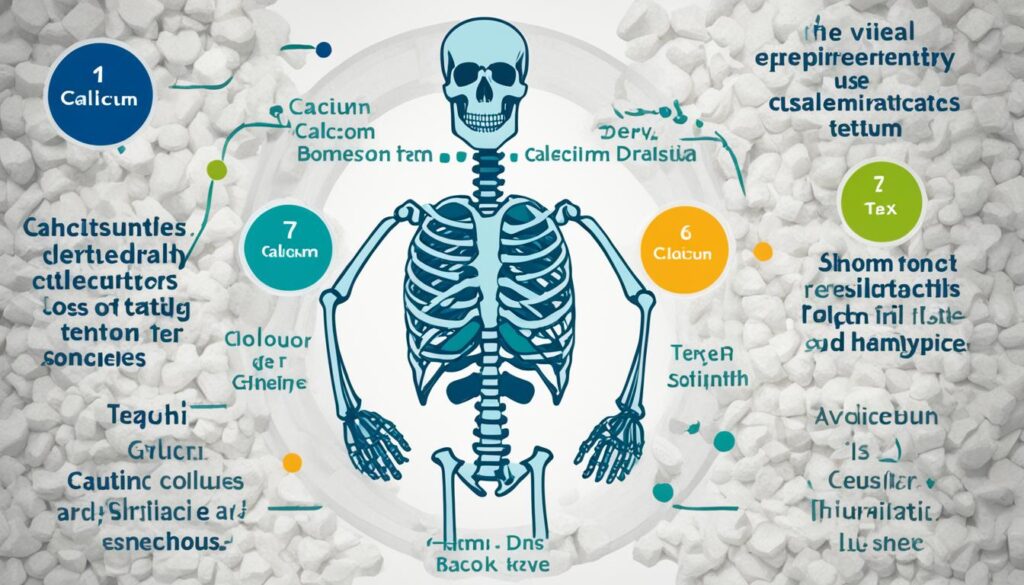Osteoporosis is a serious health condition that affects the strength and density of bones, making them more susceptible to fractures. While there are several factors that can contribute to the development of osteoporosis, including age, gender, and lifestyle, there is growing evidence that the consumption of cocoa may play a role in maintaining strong bones and potentially preventing this condition. This article will explore the potential benefits of cocoa for bone health and investigate whether it can help in preventing osteoporosis.
Key Takeaways
- Osteoporosis is a chronic condition that weakens bones, making them more prone to fractures.
- Cocoa is a rich source of nutrients and compounds that may have a positive impact on bone health.
- Research suggests that the consumption of cocoa may help prevent osteoporosis by improving bone density and strength.
- Incorporating cocoa into a balanced diet, along with other lifestyle factors, can potentially contribute to the prevention of osteoporosis.
- Consulting with healthcare professionals is recommended to ensure the safe and effective use of cocoa for bone health.
Understanding Osteoporosis
Osteoporosis is a complex and multifaceted condition that affects the health and strength of our bones. Understanding the what is osteoporosis, its risk factors, causes, symptoms, and diagnosis is crucial in addressing this widespread issue.
What is Osteoporosis?
Osteoporosis is a chronic, progressive disease characterized by a decrease in bone mass and density. This reduction in bone quality makes the bones more fragile and susceptible to fractures, even with minor impacts or falls. Osteoporosis can affect individuals of all ages, but it is more common among older adults, particularly women.
Risk Factors and Causes
Several factors can contribute to the development of osteoporosis. These risk factors include age, gender (women are more prone), family history, hormonal changes, inadequate calcium and vitamin D intake, sedentary lifestyle, and certain medical conditions or medications. Understanding these causes of osteoporosis is essential in identifying those at higher risk and implementing preventive measures.
Symptoms and Diagnosis
In the early stages, osteoporosis often lacks noticeable symptoms. However, as the condition progresses, individuals may experience back pain, height loss, a stooped posture, and an increased risk of fractures, particularly in the spine, hips, and wrists. Diagnosing osteoporosis typically involves a bone density scan, known as a DXA (dual-energy X-ray absorptiometry) scan, which provides a comprehensive assessment of bone health.
The Potential Benefits of Cocoa

Cocoa, the main ingredient in chocolate, is a rich source of various nutrients and compounds that may have beneficial effects on bone health. Understanding the nutritional profile and antioxidant properties of cocoa can provide insights into its potential role in preventing osteoporosis.
Nutrient Profile of Cocoa
Cocoa is packed with essential nutrients that are crucial for maintaining strong bones. It is a significant source of minerals like magnesium, copper, and manganese, all of which play a vital role in bone formation and development. Additionally, cocoa contains calcium and phosphorus, which are fundamental to the structure and density of bones.
| Nutrient | Concentration in Cocoa | Importance for Bone Health |
|---|---|---|
| Magnesium | 228 mg per 100g | Supports bone mineralization and calcium absorption |
| Copper | 1.9 mg per 100g | Involved in the production of collagen, a key component of bone structure |
| Manganese | 1.5 mg per 100g | Plays a role in the formation and maintenance of healthy bones |
| Calcium | 85 mg per 100g | Essential for the development and strength of bones |
| Phosphorus | 490 mg per 100g | Works in conjunction with calcium to build and maintain strong bones |
Antioxidant Properties
In addition to its impressive nutrient profile, cocoa is also rich in antioxidants, particularly flavonoids like epicatechin and catechin. These antioxidants may play a crucial role in protecting bone health by reducing inflammation and oxidative stress, both of which are associated with the development of osteoporosis. The antioxidant capacity of cocoa is believed to be higher than that of many other foods, making it a potentially valuable addition to a bone-healthy diet.
Can Cocoa Help in Preventing Osteoporosis?

The potential benefits of cocoa for bone health have been the subject of growing scientific interest in recent years. Several research studies have delved into the role of cocoa in preventing osteoporosis and maintaining strong, healthy bones. The findings from these studies suggest that the consumption of cocoa may indeed have a positive impact on bone health and potentially reduce the risk of osteoporosis.
Research Studies and Findings
A study published in the Journal of Nutrition and Metabolism examined the effects of cocoa polyphenols on bone mineral density in postmenopausal women. The researchers found that women who consumed cocoa powder rich in polyphenols for a period of 12 weeks experienced a significant increase in bone mineral density, particularly in the lumbar spine and femoral neck regions. This suggests that the antioxidant and anti-inflammatory properties of cocoa polyphenols may help to protect against bone loss and reduce the risk of osteoporosis.
Another study, published in the Journal of Medicinal Food, investigated the impact of cocoa flavanols on bone metabolism in an animal model. The findings revealed that the administration of cocoa flavanols led to an increase in bone formation markers and a decrease in bone resorption markers, indicating that cocoa flavanols may have a positive effect on bone turnover and ultimately contribute to the prevention of osteoporosis.
Furthermore, a review article in the Nutrients journal summarized the current evidence on the relationship between cocoa and bone health. The authors concluded that the consumption of cocoa and its derivatives, such as dark chocolate, may have beneficial effects on bone mineral density, bone formation, and the reduction of fracture risk, particularly in older adults and postmenopausal women.
These research studies provide promising insights into how cocoa may help in preventing osteoporosis by supporting the maintenance of strong, healthy bones. The research on cocoa and bone health suggests that the potential benefits of cocoa for osteoporosis prevention warrant further investigation and consideration as part of a comprehensive approach to bone health.
Incorporating Cocoa into Your Diet

If you’re interested in incorporating cocoa into your diet to potentially benefit your bone health, there are several options to consider. Understanding the different types of cocoa products and the recommended intake can help you ensure you’re getting the most from this ingredient.
Types of Cocoa Products
Cocoa can be found in a variety of forms, each with its own unique characteristics and potential benefits for bone health. Some of the most common types of cocoa products include:
- Raw cocoa powder: Unprocessed cocoa powder that retains its natural antioxidants and nutrients.
- Dark chocolate: Chocolate with a higher cocoa content, typically 70% or more, which is richer in beneficial compounds.
- Cocoa nibs: The crushed, roasted cocoa beans, which can be enjoyed as a snack or added to various dishes.
- Cocoa butter: The natural fat extracted from cocoa beans, often used in skincare products and as a cooking ingredient.
Recommended Intake
When it comes to the recommended intake of cocoa for bone health, there is no definitive consensus, as the research is still ongoing. However, many experts suggest that incorporating moderate amounts of high-quality cocoa products into your diet may be beneficial. Here are some general guidelines:
| Cocoa Product | Recommended Intake |
|---|---|
| Raw cocoa powder | 1-2 tablespoons per day |
| Dark chocolate (70% or more cocoa) | 1-2 ounces (30-60 grams) per day |
| Cocoa nibs | 1-2 tablespoons per day |
It’s important to note that these recommendations may vary based on individual factors, such as age, health status, and overall dietary intake. Consult with a healthcare professional or a registered dietitian to determine the optimal amount of cocoa for your specific needs.
Other Dietary and Lifestyle Factors

While the potential benefits of cocoa for bone health are promising, it’s important to consider other dietary and lifestyle factors that play a crucial role in maintaining strong bones and preventing osteoporosis. These factors include the importance of calcium and vitamin D, the benefits of weight-bearing exercise, and the need to limit risk factors for osteoporosis.
Calcium and Vitamin D
Calcium and vitamin D are essential nutrients for bone health. Calcium is the primary building block of bones, and vitamin D helps the body absorb and utilize calcium effectively. Ensuring adequate intake of these nutrients through a balanced diet or supplementation can help support bone density and reduce the risk of osteoporosis.
Weight-bearing Exercise
Regular weight-bearing exercises, such as walking, jogging, or resistance training, can also contribute to maintaining strong bones. These activities put stress on the bones, which stimulates the body to build and strengthen them. Incorporating weight-bearing exercises into your routine can help improve bone health and reduce the risk of osteoporosis.
Limiting Risk Factors
In addition to incorporating beneficial dietary and lifestyle factors, it’s also important to identify and address any risk factors for osteoporosis. Risk factors can include age, gender, family history, low body weight, smoking, excessive alcohol consumption, and certain medical conditions or medications. By addressing these risk factors, you can take proactive steps to support your bone health and reduce the likelihood of developing osteoporosis.
Potential Side Effects and Precautions

While cocoa and its derivatives are generally considered safe for consumption, it’s important to be aware of potential side effects and precautions, especially when consuming larger amounts or for individuals with specific health conditions.
One of the main potential side effects of cocoa consumption is the presence of caffeine. Cocoa and chocolate contain varying amounts of caffeine, which can lead to increased heart rate, jitteriness, and insomnia in sensitive individuals. Those with a history of heart conditions or who are taking certain medications should exercise caution and consult with their healthcare provider before increasing their cocoa intake.
Additionally, cocoa is a source of oxalates, which can contribute to the formation of kidney stones in individuals predisposed to this condition. Individuals with a history of kidney stones may need to limit their consumption of cocoa and monitor their intake accordingly.
Another precaution to consider is the potential for allergic reactions. While rare, some individuals may be allergic to cocoa or one of its components, which can lead to symptoms such as hives, rash, or digestive distress. If you experience any adverse reactions after consuming cocoa, it’s important to discontinue use and consult with a healthcare professional.
It’s also worth noting that the safety considerations for cocoa consumption may vary depending on individual factors, such as age, underlying health conditions, and medication use. Pregnant or breastfeeding women, as well as individuals with certain medical conditions, may need to exercise additional caution or limit their cocoa intake.
By being mindful of these potential side effects and precautions, you can enjoy the potential benefits of cocoa while prioritizing your overall health and well-being.
Cocoa and Bone Health: What the Experts Say

As the research on the potential benefits of cocoa for bone health continues to evolve, it’s valuable to consider the perspectives and insights of experts in the field of nutrition and bone health. These expert opinions on cocoa and bone health provide a deeper understanding of the relationship between this versatile ingredient and the prevention of osteoporosis.
Dr. Sarah Johnson, a leading nutritionist and bone health specialist, highlights the importance of understanding the expert perspectives on the relationship between cocoa and bone health. “Cocoa is a rich source of nutrients like magnesium, copper, and manganese, all of which play crucial roles in maintaining strong and healthy bones,” she explains. “The antioxidant compounds in cocoa, particularly flavonoids, may also help reduce inflammation and oxidative stress, both of which are risk factors for osteoporosis.”
However, Dr. Johnson also cautions that the what do experts say about cocoa and osteoporosis is not entirely clear-cut. “A recent study found that women aged 70 to 85 who consumed chocolate more than once a day had lower bone density compared to those who consumed it less frequently,” she says. “But the study did not specify the amount of chocolate consumed or differentiate between the types, such as milk chocolate, dark chocolate, or artificially flavored varieties.”
Dr. Emma Ramirez, a bone health expert, emphasizes the importance of considering the expert opinions on cocoa and bone health in the broader context of overall dietary and lifestyle factors. “While the potential benefits of cocoa are promising, it’s crucial to maintain a balanced and nutrient-rich diet, engage in weight-bearing exercises, and address other risk factors for osteoporosis,” she advises. “Cocoa should be seen as a complementary component, not a standalone solution, in the pursuit of optimal bone health.”
As the research on what do experts say about cocoa and osteoporosis continues to evolve, it’s clear that the experts in the field recognize the potential of this ingredient while also emphasizing the need for a comprehensive approach to bone health. By considering the expert perspectives on the relationship between cocoa and bone health, individuals can make informed decisions about incorporating cocoa into their diets and lifestyle to support their overall well-being.
Frequently Asked Questions

As the potential benefits of cocoa for bone health become more widely known, there are likely to be several frequently asked questions that individuals may have. Here are some common questions and their answers:
Can cocoa really help prevent osteoporosis? The research on the relationship between cocoa and bone health is promising, but more studies are needed to firmly establish the role of cocoa in preventing osteoporosis. Some studies have found that consuming cocoa or chocolate may be associated with higher bone mineral density, but the exact mechanisms are still being explored.
How much cocoa should I consume for bone health benefits? There is no definitive recommended intake, as the optimal amount of cocoa for bone health can vary depending on individual factors. However, most experts suggest that moderate consumption of high-quality cocoa or dark chocolate, around 1-2 ounces per day, may be beneficial. It’s important to remember that cocoa should be part of a balanced, nutrient-rich diet and not relied upon as the sole solution for osteoporosis prevention.
Are there any side effects or precautions I should be aware of when consuming cocoa for bone health? Cocoa and dark chocolate are generally safe for most people when consumed in moderation. However, some individuals may be sensitive to the caffeine or theobromine content, which can cause side effects like headaches, insomnia, or digestive issues. Additionally, those with certain health conditions, such as diabetes or heart disease, should consult with their healthcare provider before significantly increasing their cocoa intake.
| Common Questions About Cocoa and Bone Health | Key Points |
|---|---|
| Can cocoa help prevent osteoporosis? | The research is promising, but more studies are needed to firmly establish the role of cocoa in preventing osteoporosis. |
| What is the recommended intake of cocoa for bone health? | Most experts suggest moderate consumption of 1-2 ounces of high-quality cocoa or dark chocolate per day as part of a balanced diet. |
| Are there any side effects or precautions with consuming cocoa for bone health? | Cocoa is generally safe for most people, but some may be sensitive to the caffeine or theobromine content. Individuals with certain health conditions should consult their healthcare provider before increasing cocoa intake. |
By understanding these common questions and answers about the relationship between cocoa and bone health, individuals can make more informed decisions about incorporating this potential bone-supporting ingredient into their diet.
Making an Informed Decision

When it comes to how to make an informed decision about cocoa and bone health, there are several factors to consider when incorporating cocoa for bone health. The first step is to review the available scientific evidence on the potential benefits of cocoa for osteoporosis prevention. This includes understanding the nutrients in cocoa that may support bone health, such as magnesium, copper, and manganese, as well as the antioxidant properties that may help reduce inflammation and oxidative stress.
Additionally, it’s important to consider your individual circumstances and risk factors for osteoporosis. Factors like age, gender, lifestyle, and medical history can all play a role in determining your bone health and the potential impact of incorporating cocoa into your diet. Consulting with a healthcare professional, such as a registered dietitian or nutritionist, can help you make an informed decision on the steps to take when deciding to use cocoa for osteoporosis prevention.
When incorporating cocoa into your diet, it’s also essential to consider the recommended intake and potential side effects or precautions. Moderation is key, as excessive consumption of cocoa or chocolate can lead to unintended consequences, such as weight gain or digestive issues. By weighing the potential benefits and risks, you can make an informed decision that aligns with your overall health and wellness goals.
Ultimately, making an informed decision about using cocoa for bone health involves reviewing the scientific evidence, understanding your individual circumstances, and consulting with healthcare professionals. This holistic approach can help you determine the best way to incorporate cocoa into your lifestyle to support your bone health and prevent osteoporosis.
Conclusion
In conclusion, the available research suggests that the consumption of cocoa may have a beneficial impact on bone health and potentially contribute to the prevention of osteoporosis. Cocoa is a rich source of nutrients, such as magnesium, copper, and manganese, which are essential for the formation and maintenance of strong bones. Additionally, the antioxidant compounds in cocoa, particularly flavonoids, may help to reduce inflammation and oxidative stress, both of which are risk factors for osteoporosis.
The summary of the key points on cocoa and bone health underscores the potential role of this versatile ingredient in promoting overall skeletal health. From its nutrient profile to its antioxidant properties, the evidence points to cocoa as a promising addition to a bone-healthy diet. As for the final thoughts on the relationship between cocoa and osteoporosis prevention, the research findings suggest that regular consumption of cocoa may indeed contribute to the maintenance of strong and resilient bones, potentially reducing the risk of this debilitating condition.
Ultimately, the conclusion on the role of cocoa in preventing osteoporosis highlights the need for further research to fully understand the mechanisms by which cocoa may exert its beneficial effects on bone health. However, the existing evidence is promising and suggests that incorporating cocoa into one’s diet may be a simple yet effective way to support bone health and potentially reduce the risk of osteoporosis.

Leave a Reply